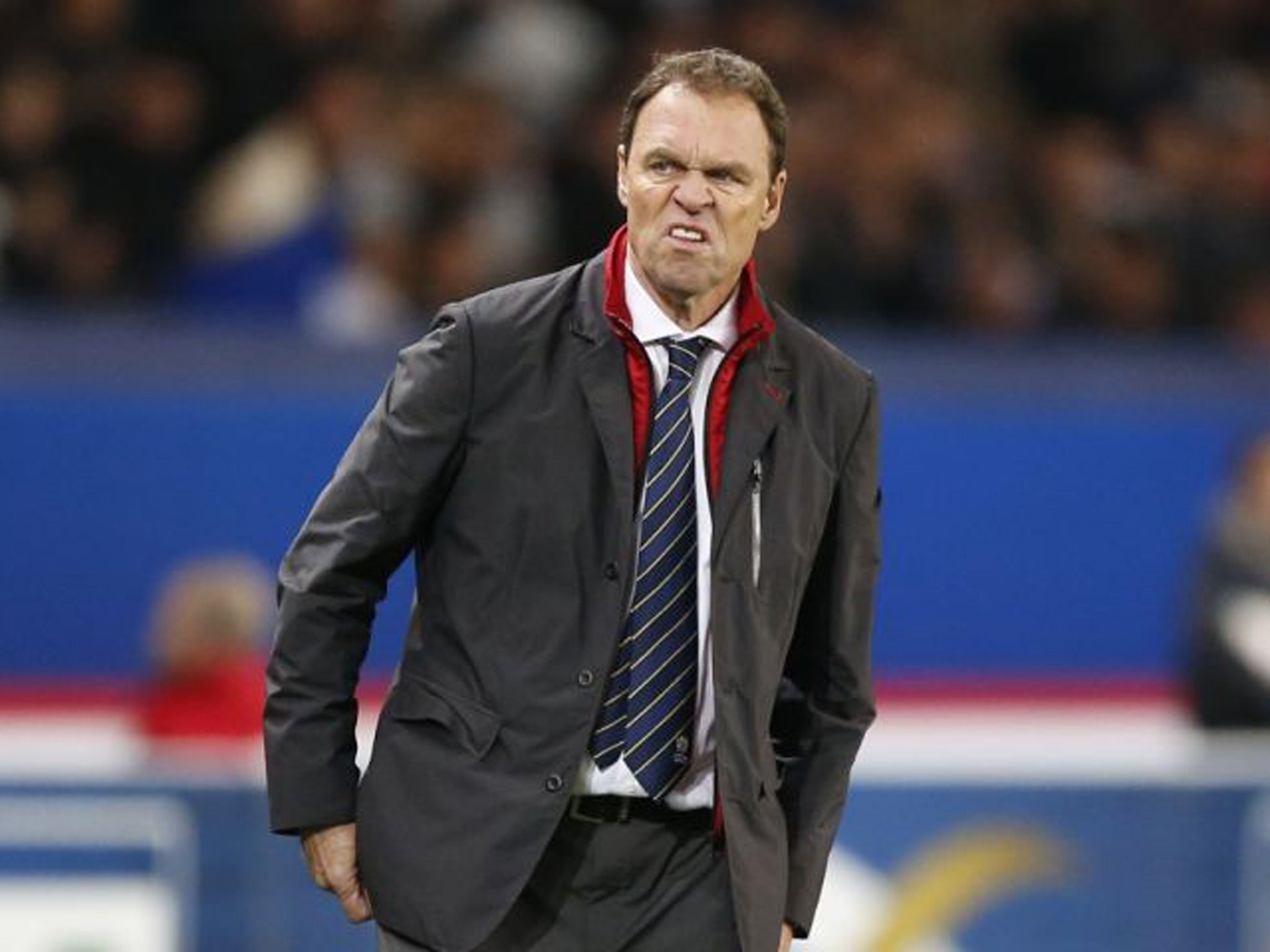World Cup qualifiers: Australia sack Holger Osieck after Socceroos humiliated again – this time by France

The thinking behind Australia’s switch in football federations from Oceania to Asia in 2006 was that it would raise standards in both their domestic and international sides. It has not quite worked out like that so far.
While the domestic game is in reasonable health confirmation that the Socceroos are stagnating came last night when coach Holger Osieck was fired after a second successive 6-0 defeat.
While the German will not thank whoever organized friendlies away to Brazil and France, who thrashed them in Paris last night, these drubbings are not a sudden fall from grace. Australia have qualified for their third successive World Cup but it was tough going with defeats in Jordan and Oman and only narrow victories over Thailand and Iraq. The Socceroos’ problem is that there is a lack of young talent to replace the likes of Mark Schwarzer, Tim Cahill, Mark Bresciano, Harry Kewell, Lucas Neill and Mark Viduka. Indeed, all but Kewell and Viduka are still involved despite being in their mid-30s, or 40-plus in Schwarzer's case. Holger’s reluctance to put much faith in the emerging taken like Celtic’s Tom Rogic and Tommy Oar of Utrecht did not help his cause.
Australia have discovered that Asian football is not as strong as it should be. When North Korea reached the World Cup quarter-finals in 1966, knocking out Italy en route, then took a 3-0 lead against Eusabio’s Portugal, it seemed Asia was on the cusp of breaking the European-South American stranglehold on the competition.
Since then, however, this vast continent has had a miserable time. Only once has one of the region’s teams gone beyond the second round. That was in 2002 when co-hosts South Korea reached the semi-finals backed by a fanatical home crowd (and aided by helpful refereeing and several months in a pre-training camp).
For the most part Asia has performed even worse than Africa, which is embarrassing given the leading Asian countries possess the organization and investment Africa frequently lacks. They have reasonable domestic competitions and several players in western European leagues including a clutch at major clubs. Yet every four years they disappoint.
The region will be represented by the usual suspects in Brazil: South Korea are making their eighth successive appearance, Japan their fifth and Australia their third. Iran, back after an eight-year hiatus for their fourth finals, make up the quartet of qualified nations with Jordan hoping they can surprise the fifth-placed South American team and make their finals bow.
The odds must be against the middle-Eastern nation coming through the November play-off while an Iranian side based on Esteghlal, the Asian Champions League semi-finalists which ex-Aston Villa defender Jlloyd Samuel plays for, are not expected to do much. Their only English-based player is Ashkan Dejagah of Fulham, where he rarely features.
Japanese have a core group of exiles including Champions League players Keisuke Honda (CSKA Moscow), Atsuto Uchida (Schake 04) and Shinji Kagawa (Manchester U), plus Internazionale's Yuto Nagatomo and Southampton's Maya Yoshida, but optimism was tempered by the Confederations Cup in the summer when they lost all three matches.
South Korea’s Western-based players may be a problem rather than a strength after revelations that Ki Sung-Yeung, the Swansea midfielder on loan to Sunderland, warned the coach Choi Kang-hee not to upset the European players. Choi was fired soon after and Hong Myung-bo, a legend as a player, but the third coach in three years, must rebuild team unity. Today they play Brazil, hoping to fare better than Australia did.
Asian adventure: World Cup record
Most appearances by Asian nations (with best performance in brackets):
8 S Korea (SF)
4 Japan (2R)
Saudi Arabia (2R)
3 Australia (2R)*
Iran (1R)
2 North Korea (QF)
1 China (1R)
Indonesia (1R)
Iraq (1R)
Israel (1R)**
Kuwait (1R)
UAE (1R)
* includes qualification from Oceania in 2006.
**Israel qualified from Asia in 1970, subsequently moved to Uefa
Subscribe to Independent Premium to bookmark this article
Want to bookmark your favourite articles and stories to read or reference later? Start your Independent Premium subscription today.

Join our commenting forum
Join thought-provoking conversations, follow other Independent readers and see their replies